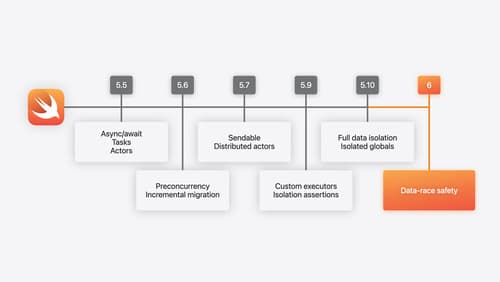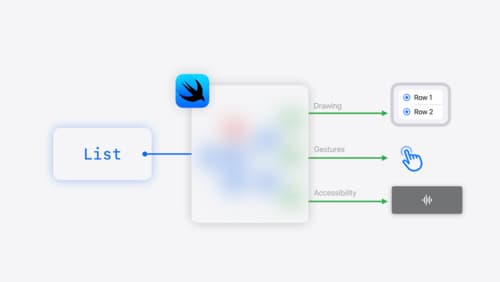What have they released in the last 3 years when it comes to Maps and SwiftUI?
Asked on 2024-07-30
1 search
SwiftUI
Over the past three years, Apple has made significant advancements in SwiftUI, enhancing its capabilities and integration across various platforms:
-
Interoperability and Customization:
- SwiftUI now allows for better interoperability with UIKit and AppKit, enabling animations and gesture recognitions to be shared across these frameworks (Platforms State of the Union).
- New features include custom containers, mesh gradients, and scrolling customizations (Platforms State of the Union).
-
Previews and Dynamic Linking:
- Xcode Previews has been improved with a new dynamic linking architecture, making it easier to build and run previews (Platforms State of the Union).
-
Declarative Structure and Low-Level Control:
- SwiftUI provides a declarative structure for app definitions and offers low-level control for creating unique custom experiences, such as custom layouts and metal shaders (SwiftUI essentials).
-
SwiftUI in VisionOS:
- SwiftUI components like TabView and sheets translate beautifully to visionOS, and new APIs like
onGeometryChangeenhance the experience on this platform (Get started with HealthKit in visionOS).
- SwiftUI components like TabView and sheets translate beautifully to visionOS, and new APIs like
Maps
In the realm of Maps, Apple has introduced several new features and APIs to enhance the user experience and developer capabilities:
-
MapKit and MapKit JS Enhancements:
- New APIs for showing place information, such as the
MapItemDetailAPI, which can present a place card even if the app doesn't feature a map. These APIs are available for UIKit, AppKit, and SwiftUI (Unlock the power of places with MapKit).
- New APIs for showing place information, such as the
-
Adaptive Maps:
- Adaptive MapKit JS maps that can adjust to the system's preferred color scheme, light or dark (Unlock the power of places with MapKit).
Relevant Sessions
- Platforms State of the Union
- What’s new in Swift
- SwiftUI essentials
- Get started with HealthKit in visionOS
- Unlock the power of places with MapKit
These sessions provide a comprehensive overview of the advancements in SwiftUI and Maps over the past three years.

Platforms State of the Union
Discover the newest advancements on Apple platforms.

What’s new in Swift
Join us for an update on Swift. We’ll briefly go through a history of Swift over the past decade, and show you how the community has grown through workgroups, expanded the package ecosystem, and increased platform support. We’ll introduce you to a new language mode that achieves data-race safety by default, and a language subset that lets you run Swift on highly constrained systems. We’ll also explore some language updates including noncopyable types, typed throws, and improved C++ interoperability.

SwiftUI essentials
Join us on a tour of SwiftUI, Apple’s declarative user interface framework. Learn essential concepts for building apps in SwiftUI, like views, state variables, and layout. Discover the breadth of APIs for building fully featured experiences and crafting unique custom components. Whether you’re brand new to SwiftUI or an experienced developer, you’ll learn how to take advantage of what SwiftUI has to offer when building great apps.
